- Home
- G. Wells Taylor
The Urn Page 2
The Urn Read online
Page 2
Prayer was futile, I knew. I understood that in this case such appeals would offer no aid to his restoration, for the master had long ago parted with his church, and we Gypsies are not favored by the gods.
The master had taught me what to do, so I would put my faith in that.
I made my way up the winding steps of stone, carrying with me the old water bucket, sanctified now by its contents. I remembered the first time I had been taken to these heights and into the room that held the master’s wealth.
For centuries had this been the place where his treasures were hidden. I would later find that many were related to his salvation and succor.
Only if such terrible necessity ever came to pass—should the worst...
But I was only shown this place after a great journey I undertook with fine young men of my tribe. For 300 years and more had the Szgany, my people, served the master, and were protected by this association.
Another sound echoed up close behind me, and with sweat standing out upon my brow I sought to distill my fears with thoughts of the time I had come into his service.
It was 33 years ago when I was all of 18.
We had traveled a great distance from our camps, for the Roma people as we are also called, are not stupid people, and while we gratefully served the master within his principality, we had no wish to serve our families to his appetites. We left that dubious honor to the Slovaks whose villages infested every crack and crevice in the Carpathian Mountain chain.
But so terrible were the stories about the master that they even held sway at such a distance, so the Gypsy chieftains made no secret of their allegiance, often delivered as a veiled threat to any non-Szgany neighbor.
I traveled with the many young Gypsy warriors who came to the castle to pledge fealty as tradition and treaty held with our master. His exploits were remembered for his strength and honor as much as they were for his savagery. He was of a noble line of ages past, renowned for longevity and cruelty. Many thought this status came from association with God, while others deemed it the work of His hellish opposite.
But as young men, we did not waste time with philosophy. We sought a powerful lord to whom we could pledge our swords and service. For generations had the Szgany sought such alliances out: protection for service. So many had come and gone, their lives spent defending this lord in the castle.
A group of 25 young Gypsy men came from four families in my camp, and it was that great number to whom I attributed our survival in the mountainous and dangerous lands that surrounded the master’s castle.
There is a fierce individuality that keeps all Gypsy men in competition until their very graves, but that same independence was quickly united in a defense of our race should any foe come against us.
So they were bloodstained weapons we bore as we approached the castle gates; our starving bodies decorated by many scars.
We were met there by an old Szgany of a tribe that camped many leagues from our own, and it was he who held our master’s sword as we swore our allegiance upon it.
As this old one described our duties, his milky eyes ever lingered upon mine, and his expression whispered secrets.
Finally, his gaze drifted to the notched blade at my side, and he stepped up to me to speak privately.
“Can you use that?” he asked, flicking a finger at the weapon.
“I can,” I said, feeling my brothers’ jealous eyes upon me. “I fought my way here.”
It had not been easy. Slovak bandits had set upon us five times. The old blade I carried was my grandfather’s father’s and had been sorely tested. It had bent near the tip and no longer held an edge.
“Can you write?” he grumbled, tugging at his beard.
“Some, my lord,” I said. “Hungarian, I know enough to read or write a tale...” And then I added: “My numbers, too. Romanian, I can speak...and some little English.” The first tongue was essential when living in the master’s mountains, and the second a necessity for tradesmen or bandits to know when doing business on the move.
“The master requires a special servant,” the old Gypsy said. “We will school you in those things you know and in the other things our master needs. A new man is required—plague took the last.” He nodded then before smiling grimly. “I could see the weight of language in your gaze, and it will be needed in this service.”
From there I was taken to a special chamber where I was to live, a simple room with bed and desk, where I was met afterwards each day by another old man. Tall and thin he was, a teacher from a nearby Slovak village, and while his face bespoke a thousand terrors when within the master’s walls, his smile at receipt of gold for service said much more about his soul.
A year after that, the teacher stopped coming and the master took my tutelage upon himself. Oh, what a rare gift that was, for how handsome he was to look upon, and how casual his strength and noble his bearing. His shoulder-length hair was iron gray when I first met him, and he wore a thick moustache over his full, sensual lips.
He was unassuming in his stature, but exuded a masculine aura, a scent almost, that demanded obedience—even submission—from the strongest of men.
His gaze was unassailable in its power and impossible to deny. He was beautiful in his might, but I came to learn that despite his gifts of great power and riches, the master was made unhappy by the isolation that accompanied them. He was alone, and had few pleasures that could lighten his often melancholy mood.
It became a constant sadness for me to view him thus, and so I would execute my duties with the greatest of professionalism so that no lack or oversight on my part would provoke any darker feeling in him. How I longed to share with him one of the rousing tales we Gypsies sing around our fires, surely that would have raised his spirits. But my master’s feelings were not among my responsibilities in the castle, and his ire was nothing I could bear to see.
In time I understood that beneath his cloak of majesty, the master was old, and had grown weary. It was a compliment to his strong features and bearing that these same years would disappear in the rare moments that his passions were kindled for good or ill, when his spirit came alive like a fire.
I soon understood his need for a servant with knowledge of letters when I was taught old Romanian, Latin, Greek letters and English. I was also schooled in the special duties that required my skill with a sword—though I did not carry the weapon within the castle walls.
Other Szgany were there to guard him, and to protect his home. To me he told the secrets of its halls, and some secrets of his own. The special place where he slept was remote within the crumbling structure, deep in his own vault, but still there were halls around it that demanded security, and at times I found a sacrifice for him.
My brothers lived in the garrison and stable outside the castle walls, but they patrolled its grounds. And yes, some of them were sent by me to wake the master, never to be seen again.
But we were paid well, and we were brave within our group. A Szgany wall of muscle was formed about the master’s ramparts of worn stone—a bastion prepared as defense against the wider world.
In time, I learned that my special duties extended past the master’s preservation and reached into the afterlife and beyond to reclamation. It was to this study I devoted my new knowledge of languages.
Atop the winding stair, I followed a stone passage that led to a heavy door. I paused outside of it, and glanced behind to where a sickly blue flame suddenly flared in the stairwell, and for a second it flashed along the vaulted ceiling farthest from me.
There was a sudden sound, like a small weight had dropped into water, and then nothing.
I bit down on my fears and turned back to the door which I heaved into motion on its iron hinges and swung aside to view the sparsely furnished room wherein my master kept his most precious objects.
The lantern light showed that there were bits of furniture set about as if an afterthought, and all of it was covered in dust that swirled against the amber flame, accompan
ied by motes of snow that had somehow entered the room. I set my precious burden down and crossed to the window where I saw that the sash was open a finger’s width, and it was through this that the snow had drifted in on a cold breeze.
I shut the window and turned to the corner of the room that was strewn with treasures of every kind. Gold lay there aplenty, as coin and precious items: cups and other rich trinkets and jewelry that twinkled with priceless gems.
With these I would finance my journey south, and I knelt by the pile to draw from it a fortune in ancient coins of various nations: French, German and Hungarian. I chose the items that would most fit in a wandering Gypsy’s pack, though the least of them was more than could bear much scrutiny.
But if I did not wish to bring attention to myself from bandits or foreign authorities, I had to select the treasure that I could best keep hidden, and spend safely.
After collecting this fortune and dividing it into four leather sacks, I added a precious necklace of gold and one of silver with rubies along its length. I thought that these pieces might easily pay for passage to southernmost Africa if I could find a safe place to exchange them, and they’d make a fine bribe if I came against any of the corrupt officials I’d heard stories about.
Among these things I found several pendants and amulets, all of which were too rich for me to take safely outside the castle confines; however I did find a plain necklace and pendant of steel that bore a serpent etched upon it, circular in form with its tail wrapped around its own neck. Clear to me this was the winged creature that symbolized my master’s membership in the sacred Order of the Dragon.
This was small, the medallion but twice the size of a thumbnail, and so I looped the steel chain over my head and hid the device beneath my beard and woolen underclothing. Surely, if my wish came to pass then I could make it a present for my master, or if the worst happened, I could proudly wear the adornment in his memory, and as a sign of my everlasting love and loyalty to him.
Once the rest of these items were hidden at the bottom of my large leather pack, I began clearing the treasures away from their place against the wall. The metal was cold to the touch, and clouds of dust arose as I shoved the items clanging aside, but my efforts were soon rewarded.
The master’s urn!
Set against the stone wall and hidden by this pile of treasure was a rectangular box almost 20 inches on the longest side, and ten on its shortest with hinged metal handles bolted near the top.
The artifact was just under 20 inches in height and was a simple looking thing; its skin formed by narrow iron bands connecting a checkerboard of gray, enameled steel squares four inches to the side that resembled armor plating.
Center to the urn’s facing side a plate was etched with my master’s sigil, the same that adorned the medallion that lay hidden beneath my beard. Larger than the piece I wore, I could clearly see the reptile’s folded wings upon its arching back and between them the Christian cross that had failed my master so.
Atop this urn was a hinged lid of the same light armor plating. Metal grating that formed a vent about eight inches in length and three across was recessed in its surface. There a set of thin, metal dampers could be made to open and close by twisting a pair of ornate levers shaped like curved wings on another pair of dragon symbols etched to either side of the vent.
This opening was used to allow the passage of air and liquids without exposing the urn’s contents. To actually open the lid would require unfastening a pair of latches, which swung the entire top of the urn out of the way.
I knelt and undid these fastenings before swinging the lid aside, and was immediately struck by a rank gasp of decay that wafted out. I paused before reaching in and drawing out a rectangular package wrapped in leather and tied with thick twine.
I drew my knife and easily cut the strings, and then wiped at the greasy black residue that had transferred from the package to my hands. My skin tingled strangely wherever the substance had touched it.
I then lifted my lantern and peered into the urn. Indeed this finer inspection revealed a foul-smelling black slime covering the bottom that appeared to have spread up the inner surface. The irregular edge of this dark stain was fringed with a crusty ridge of mold, and there was a dim blue luminescence that flickered there, when the light from the lantern shifted.
For a moment I imagined carrying this noisome artifact in public and then I wondered if there would be some means of hiding its stench.
I glanced over at the simple metal bucket that held my master’s remains, and I shuddered with shame before turning my attention back to the package and gingerly peeling away its deeply stained leather wrapping.
Larger by a half than my hand, I pulled the leather-bound contents into the light.
The master’s book! It was 12 inches in height and eight from spine to page’s edge and felt to be two pounds when hefted in hand.
A symbol had been embossed on the front cover that was otherwise unadorned. The small device signified a long line of Wallachian kings. It was the house from which my master’s line had sprung: Basarab. A shield-shaped mark, the right side was plain, the left was divided top to bottom by several horizontal lines set an equal distance apart.
A mark that would be obscure to any but a student of ancient Wallachian history.
Flicking through, I saw that the pages were of vellum, and bore many notes and some illustrations that described in ink my master’s varied instructions on what special service I had been prepared to perform. The majority of these were written by various hands in old Romanian, while additions in Hungarian and Latin, Greek of course and another, Cape Dutch, could be found in the margins.
All of these I had been taught to recognize and to read.
The book had many thick pages...
A noise?
I turned to the window, then to the half-open door and the hallway beyond. Had I heard a sound? Did something still reside within the castle? Or had that knock come from without?
Did others have knowledge of the master’s treasure? Some among my Gypsy brothers would know. Rumors at least...and some of them might have abandoned the chase for the westerners. Surely they would only wish to protect their master’s treasure, but there was still greed in my tribe, and with a master dead, what value is the oath sworn to him?
Or had someone with that knowledge shared it? Did news of the master’s unguarded treasures travel the land even now? Such knowledge would be welcome in the poor villages that dotted the lands around his castle.
I had to leave.
Again there was an echo, like a large drop of water had fallen into a deep well.
I had to go, but lingered a moment to page through my master’s book to the section that would confirm my fears, and remind me of hope.
“An index of death,” the master had once called his tome, when he’d taken me into his confidence—made me his intimate.
“Misfortune redirected...” he’d said at other times.
A strong hand had made a list with pen and ink, written in the ancient tongue native to old Wallachia, the country that birthed my master’s own. I knew this language, and had been taught it long ago as part of my initiation into this sacred post.
And so, I recoiled in horror as I read each item, for the macabre headings reminded me of my dear master’s recent horrific destruction. On the list I read: Death by fire or acid. Decapitation. Staking. Quartering. Drowning and immersion. Dismemberment. Disemboweling. Crushing.
And beside each item on the list was a page reference.
I followed the reference from “Staking” and found it coincided with a “Decapitations” referring page, and quickly read: “if the body has been reduced to dust or ash...”
Just as I had been taught, and so expected, the urn would most certainly be required, and some refuge would be needed for a time.
He’d spoken to me of it on occasion, as if some premonition vexed him, or a fear of his own demise had come upon him, for he would say: “Horvat,
do what is written if the worst happens.”
Each time I had listened with tremulous senses for the idea of his death had always left me uneasy.
“An old ally has made his home in South Africa, and such a safe haven will I need if ever circumstance puts me in the hands of enemies who wish for my complete destruction. No friend, but he owes me fealty, and will receive me in such a time of need.” He had looked at me sternly. “The book is the key.”
I re-wrapped this book in its stained leather covering and slipped it beneath my coat and into a large pocket where I also stored my fur hat when it was not in use. I rubbed my tingling hands against my coat and nodded at the simple metal bucket and its contents.
Horvat would take his master to South Africa.
I transferred the ashy remains to the urn and was pleasantly surprised to find that this doughy compound dampened the odor that came from the oily black substance covering the bottom of the container. This I would smother with dirt from the graveyard after I’d retraced my steps to the chapel grounds at the bottom of the stairs.
It was time to go.
Just as I was leaving the room the sound returned, and standing there, I decided that other Gypsies must be about the castle, or pillagers or worse, and so I started along the corridor with my knife clenched between my teeth.
The lantern swung precariously from my right wrist that I had thrust through the loop of wire from which the light hung, for both hands were needed to carry the urn by its handles. The curious box was not heavy but it was awkward, and I suspected that a protracted period carrying it would leave my arms and shoulders aching.
Still, there was nothing I could do, for my mind had set by this time on saddling my horse and using her for the trip to the coast.

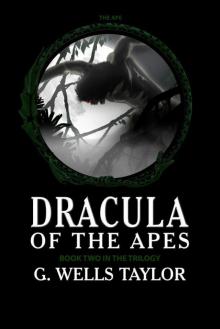 Dracula of the Apes 2
Dracula of the Apes 2 Dracula of the Apes 3
Dracula of the Apes 3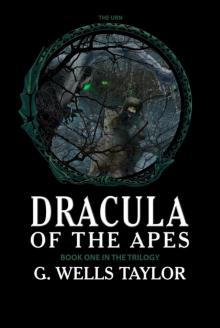 The Urn
The Urn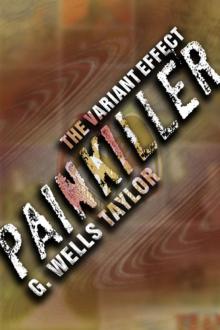 Painkiller
Painkiller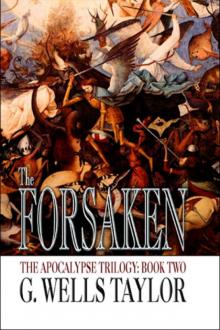 The Forsaken - The Apocalypse Trilogy: Book Two
The Forsaken - The Apocalypse Trilogy: Book Two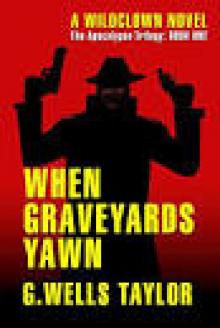 When Graveyards Yawn
When Graveyards Yawn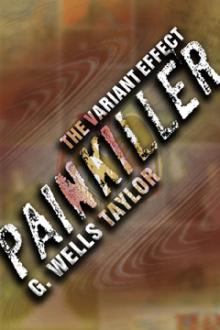 The Variant Effect: PAINKILLER
The Variant Effect: PAINKILLER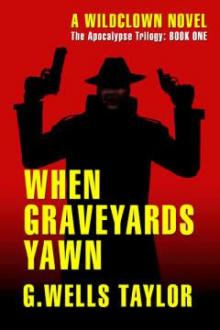 When Graveyards Yawn ta-1
When Graveyards Yawn ta-1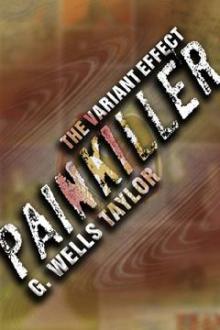 Painkiller tve-2
Painkiller tve-2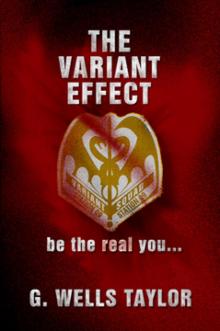 The Variant Effect
The Variant Effect